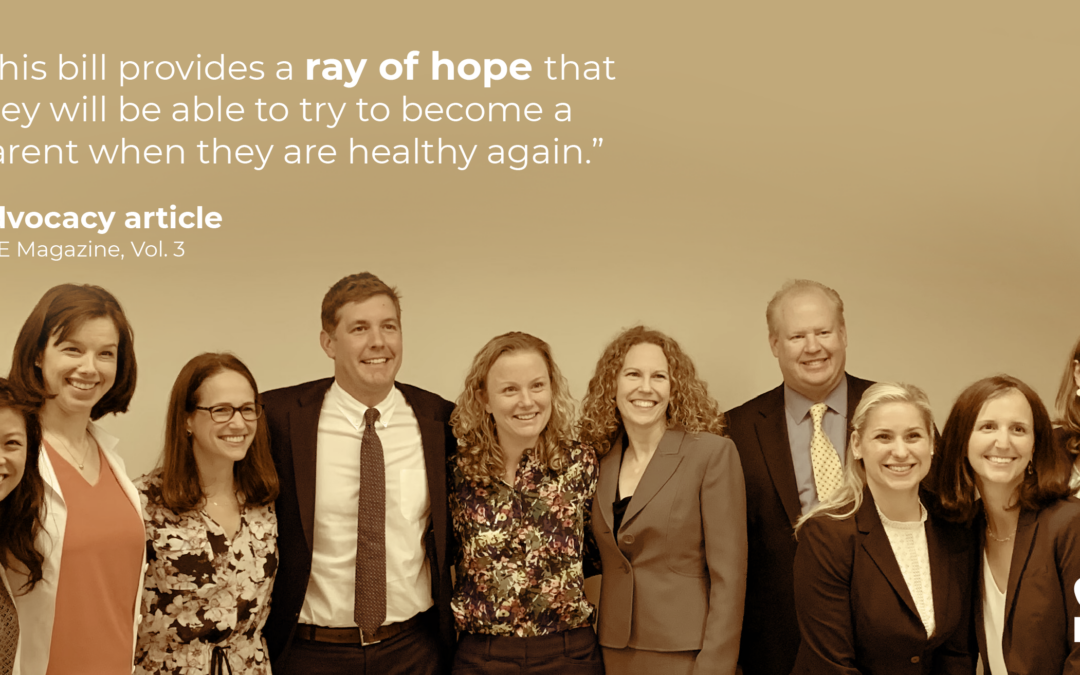Featured in the RNE Magazine, 2021 Volume 3
Many individuals and couples dream of becoming a parent. Yet for some, future parenthood is jeopardized by medical conditions and/or treatment that can impair their fertility, including but not limited to some types of cancer or chemotherapy. The Alliance for Fertility Preservation notes that approximately 1.5 million people are diagnosed with cancer annually in the United States, and nearly 10% of these diagnoses occur in people 45 years old or under. “Many of these 150,000 people have not yet had children, have not completed their families, or, in fact, are still children themselves. For these patients, preserving their fertility is an important part of their survivorship and life after cancer.” Fertility preservation, which is saving reproductive material in order to utilize it to have biological children in the future, can provide options and hope. This is why Resolve New England (RNE) strongly supports improved access to insurance coverage for fertility preservation for medical reasons.
Fortunately, there are many ways for people to build families. For those that want to protect their ability to conceive children with a biological connection to their parent, it is critical for fertility preservation to be more accessible. As the quality and effectiveness of fertility preservation care has advanced considerably over time, so too has the recognition that this is a critical insurance benefit. Since 2017, multiple states have passed legislation related to fertility preservation.

